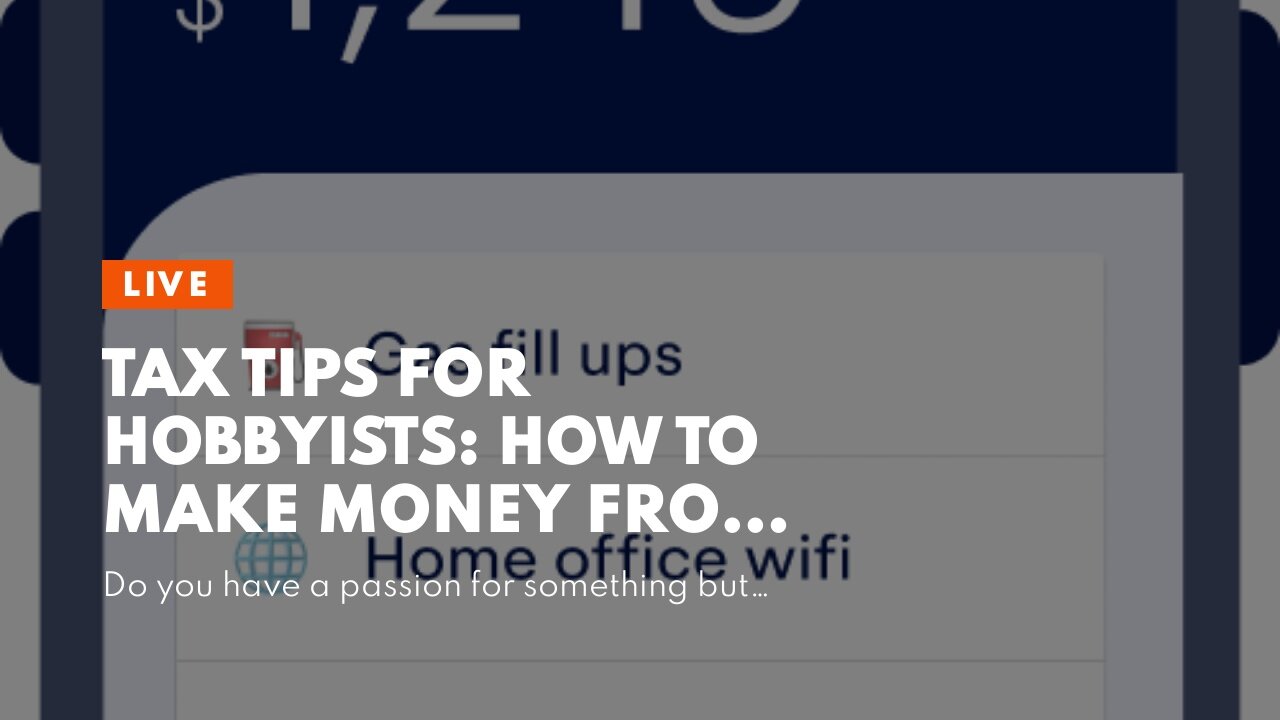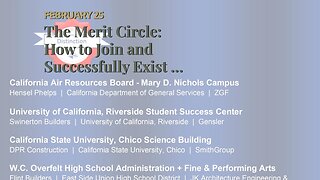Premium Only Content

Tax Tips for Hobbyists: How to Make Money from Your Hobby
Tax Tips for Hobbyists: How to Make Money from Your Hobby
Do you have a passion for something but don’t know where to start? Are you an artist or musician, but don’t know what to do with that talent? Check out our article on how to make money from your hobby! We’ll cover everything from starting small to making a big impact. Whether you’re an artist looking for ways to monetize your work, or a musician ready to cash in on your skills, we’ve got the information you need. So read on—and get ready to start earning some extra cash! Photo by SHVETS production on Pexels What is Hobbyism and What...
https://finetimer.site/tax-tips-for-hobbyists-how-to-make-money-from-your-hobby/
Do you have a passion for something but don’t know where to start? Are you an artist or musician, but don’t know what to do with that talent? Check out our article on how to make money from your hobby! We’ll cover everything from starting small to making a big impact. Whether you’re an artist looking for ways to monetize your work, or a musician ready to cash in on your skills, we’ve got the information you need. So read on—and get ready to start earning some extra cash! Photo by SHVETS production on Pexels What is Hobbyism and What Do You Need to Know About It.
Hobbyism is a term used to describe any activity that someone enjoys but does not consider themselves an artist, musician, or sculptor. For example, some people might enjoy playing video games or watching television all day long, while others might specialize in one type of hobby and devote entire days to it.
There are three different levels of hobbyism: amateur, semi-professional, and professional. Amateur hobbyists are those who have only started out with their hobby and do not have a formal career as a result. Semi-professional hobbyists are those who have established themselves as a successful freelance artist or musician and are now looking for ways to make more money from their hobbies. Professional hobbyists are those who have achieved some level of success as a freelance artist or musician and want to take their skills to the next level.
There are different types of income tax rates for hobbyists: business income tax rates are higher for professional Hobbyists than for amateur ones, social security and Medicare taxes apply to business Hobbyists differently than they do to semi-professional or professional ones, and VAT ( Value Added Tax) is levied on various items sold by hobbyists.
What are the Different Types of Hobbyism.
There are two main types of hobbies: recreational and creative. Recreation hobbies involve activities like reading, watching TV shows, playing video games, listening to music, etc., while creative hobbies involve creating art or making inventions. There are also sportelikes which fall into the category of creative hobbies; these involve taking part in an activity that has nothing to do with actual work but is enjoyed as a leisure pursuit instead of being paid for it.
What are the Different Types of Income Tax Rates for Hobbyists.
In order to claim deductions on your income from your hobbies, you will need to file Form 1220 (Hobbyist Income Disclosure form). This form will list all your regular income sources such as wages and salaries from outside sources (e.g., job offers), rental income from housing projects/leases you maintain while working on your hobby project(s), etc., plus any profits you derive from activities related to your hobby project(s). You will also need To File Form 8096 (Hobbyist Self-Employment Tax Return), which is filed if you earn over $100,000 per year from your profession as an artist or musician alone—this amount must be reported on both your individual federal income tax return and your state’s individual income tax return combined!
You can find more information aboutForm 1220 at IRS website .
What are the Different Types of Tax Benefits for Hobbyists?
There are several significant tax benefits available specifically for artists or musicians: low selfemployment taxes (in most cases) because you don’t own any property that could be used in lieu of earning rent; no business losses can be claimed; no capital gains tax when selling equipment or assets associated with your trade; free healthcare when working in the medical field—all this without having ever worked in customer service before! Finally, many states offer special programs that offer lower taxes on musical royalties received from sales generated through audio recordings made...
-
 5:29
5:29
FineTimer
2 years agoThe Merit Circle: How to Join and Successfully Exist in this Competitive World
476 -
 LIVE
LIVE
LFA TV
12 hours agoLFA TV ALL DAY STREAM - FRIDAY 6/13/25
5,266 watching -
 LIVE
LIVE
Bannons War Room
3 months agoWarRoom Live
17,049 watching -
 LIVE
LIVE
Benny Johnson
1 hour ago🚨Trump RAGES After Israel Bombs Iran in Massive Attack, World War 3: ‘They’re All DEAD!’
7,856 watching -
 LIVE
LIVE
The Big Mig™
3 hours agoMiddle East Meltdown, We All Lose
4,215 watching -
 LIVE
LIVE
Caleb Hammer
56 minutes agoDave Ramsey Was Wrong, Now She's F*cked | Financial Audit
99 watching -
 35:36
35:36
Rethinking the Dollar
1 hour agoBombs Drop, Stocks Flop & GOLD Tops | Morning Check-In
159 -
 1:07:59
1:07:59
Dear America
3 hours agoWW3?! Israel STRIKES Iran!! + Judge BLOCKS Trumps National Guard In LA!! WHAT IS HAPPENING‼️
78.1K188 -
 2:01:35
2:01:35
Matt Kohrs
11 hours agoMarkets Plummet, Breaking News & Payday Friday || The MK Show
23K10 -
 LIVE
LIVE
Badlands Media
9 hours agoBadlands Daily: June 13, 2025
5,349 watching